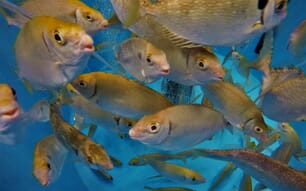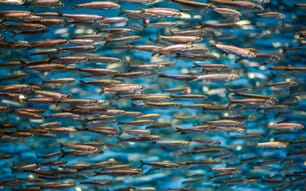The changes, approved by the MSC Board of Trustees, aim to increase the transparency and accessibility of the certification process for stakeholders, and to ensure that stakeholder contributions are considered rigorously.
The new rules, which came into effect on 1 May this year, strengthen the requirements upon certifiers to acknowledge and consider all written stakeholder comments, and to provide explicit responses from the assessment teams, at key stages of the assessment process. In the Draft Report produced for public comment, certifiers are now required to explicitly note and address relevant issues raised and comments submitted by stakeholders during the initial scoping, consultation and site visits.
In the Public Certification Report (the final report) certifiers must clearly identify what, if any, changes to scoring have been made in response to stakeholder comments on the Draft Report; and, where changes are suggested but none made, provide a justification for that decision. The new rules also clarify the duty of certifiers to address peer reviewer comments; to keep stakeholders directly informed of each step in the assessment process and any changes to assessment timelines; to directly acknowledge receipt of all stakeholder submissions and to provide an indication of how and when those submissions will be addressed.
Changes to the methodology underpinning the MSC Chain of Custody standard for seafood traceability have also been introduced, following feedback from clients, certifiers and the independent accreditation body, Accreditation Services International. The new requirements, which will take effect from 1 July 2010, will streamline assessments and reduce the administrative requirements upon existing and future supply chain clients, without diluting the stringency of the standard.
The changes introduced mean that MSC certified fish is no longer required to be on site when an audit takes places, increasing flexibility. Buyers with Chain of Custody certification can now prepare in advance for an anticipated certification of a fishery by setting up pre-approved traceability systems, so saving time getting products to market. There are clearer guidelines on which operators in the supply chain need CoC certification. Certifiers can now also apply a risk-based approach to decide the frequency of surveillance audits once initial certification has been completed, meaning that visits happen as and when they are needed rather than on a rigid schedule.
Rupert Howes, MSC Chief Executive, said: "The MSC standards were created following an extensive consultation process, and as we refine and evolve the policies and methodologies that implement those standards, we are committed to fully involve and actively seek the views of stakeholders, clients and certification bodies who are engaged in the programme and to make sure it works well for all involved.
"Effective stakeholder engagement in fishery assessments is an essential element of the fishery assessment process, and critical to maintaining the rigour and credibility of the MSC programme. These changes, stemming from direct feedback from stakeholders about their experiences in assessments aim to ensure that certifiers both take account, and can be clearly seen to take account of the perspectives and expertise of stakeholders.
"It is essential as well that the MSC certification processes and standards remain accessible and universally applicable, and carefully balance the imperative to maintain their rigour while being mindful of their time and cost requirements. We hope that the refinements we have introduced to the Chain of Custody methodology will make the MSC standard for seafood traceability a more achievable goal for small businesses as well as large."
MSC Listens to Policy Changes
GLOBAL - Recent changes to the MSCs fisheries certification methodology will improve how certifiers respond to stakeholder contributions to fishery assessments.



